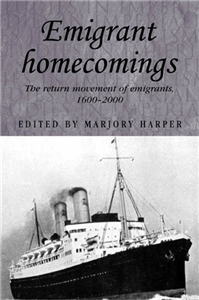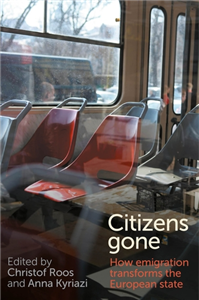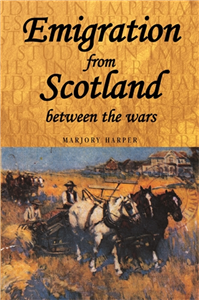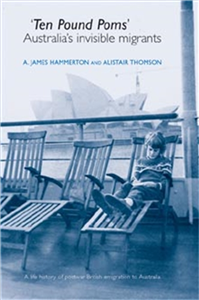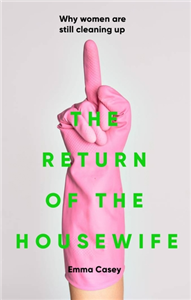Your Search Results
-
Emily Publishing Company
Founded in 2012 by Emily Chuang. Emily Publishing mainly publishes translated fiction, non-fiction and children's picture books and starts to represent selected books from Taiwan and Japan to all over the world since 2019.
View Rights Portal
-
Promoted ContentHumanities & Social SciencesMarch 2017
Emigrant homecomings
The return movement of emigrants, 1600–2000
by Marjory Harper
Emigrant Homecomings addresses the significant but neglected issue of return migration to Britain and Europe since 1600. While emigration studies have become prominent in both scholarly and popular circles in recent years, return migration has remained comparatively under-researched, despite evidence that in the nineteenth and twentieth centuries between a quarter and a third of all emigrants from many parts of Britain and Europe ultimately returned to their countries of origin. Emigrant Homecomings analyses the motives, experiences and impact of these returning migrants in a wide range of locations over four hundred years, as well as examining the mechanisms and technologies which enabled their return. The book examines the multiple identities that migrants adopted and the huge range and complexity of homecomers' motives and experiences. It also dissects migrants' perception of 'home' and the social, economic, cultural and political change that their return engendered.
-
Promoted ContentHumanities & Social SciencesJanuary 2012
Emigrant homecomings
The return movement of emigrants, 1600–2000
by Andrew Thompson, Marjory Harper, John Mackenzie
Emigrant homecomings addresses the significant but neglected issue of return migration to Britain and Europe since 1600. While emigration studies have become prominent in both scholarly and popular circles in recent years, return migration has remained comparatively under-researched, despite evidence that in the nineteenth and twentieth centuries between a quarter and a third of all emigrants from many parts of Britain and Europe ultimately returned to their countries of origin. Emigrant homecomings analyses the motives, experiences and impact of these returning migrants in a wide range of locations over four hundred years, as well as examining the mechanisms and technologies which enabled their return. The book examines the multiple identities that migrants adopted and the huge range and complexity of homecomers' motives and experiences. It also dissects migrants' perception of 'home' and the social, economic, cultural and political change that their return engendered. ;
-
 Trusted Partner
Humanities & Social SciencesJuly 2026
Trusted Partner
Humanities & Social SciencesJuly 2026Citizens gone
How emigration transforms the European state
by Christof Roos, Anna Kyriazi
Emigration of scale challenges states at the European periphery at their core. The book documents these struggles along their effects for politics and policy within their economic and welfare dimensions. The politics of emigration describe changing voter attitudes and behaviour pointing towards more support for nationalist and right-wing parties. The policies of emigration show state and local level efforts for the return of emigrant citizens. The welfare and economic dimensions explore the context for emigration and its effects for growth models and systems of health and care within the European single market. The book observes two types of state transformations: the re-emergent nation-state that re-discovers its core resource, the citizenry, as well as states that functionally and socially adapt to population loss.
-
 Trusted Partner
Humanities & Social SciencesAugust 2009
Trusted Partner
Humanities & Social SciencesAugust 2009Emigration from Scotland between the wars
by Marjory Harper, Andrew Thompson, John Mackenzie
Emigration from Scotland has always been very high. However, emigration from Scotland between the wars surpassed all records; more people emigrated than were born, leading to an overall population decline. Why was it so many people left? Marjory Harper, whose knowledge is grounded in a deep understanding of the local records, maps out the many factors which worked together to cause this massive diaspora. After an opening section where the author sets the Scottish experience within the context of the rest of the British Isles, the book then divides the country geographically, starting with the Highlands, then coastal Scotland, and the urban Lowland highlighting in turn the factors that particularly influenced each of these areas. Harper then discusses the organised religious and political movements that encouraged emigration. By interweaving personal stories with statistical evidence Harper brings to life the reality behind the dramatic historical migration. ;
-
 Trusted Partner
Humanities & Social SciencesMarch 2017
Trusted Partner
Humanities & Social SciencesMarch 2017Emigration from Scotland between the wars
by Marjory Harper
Emigration from Scotland has always been very high. However, emigration from Scotland between the wars surpassed all records; more people emigrated than were born, leading to an overall population decline. Why was it so many people left? Marjory Harper, whose knowledge is grounded in a deep understanding of the local records, maps out the many factors which worked together to cause this massive diaspora. After an opening section where the author sets the Scottish experience within the context of the rest of the British Isles, the book then divides the country geographically, starting with the Highlands, then coastal Scotland, and the urban Lowland highlighting in turn the factors that particularly influenced each of these areas. Harper then discusses the organised religious and political movements that encouraged emigration. By interweaving personal stories with statistical evidence Harper brings to life the reality behind the dramatic historical migration.
-
 Trusted Partner
Political science & theoryJuly 2015
Trusted Partner
Political science & theoryJuly 2015Ireland and migration in the twenty-first century
by Mary Gilmartin
Migration is one of the key issues in Ireland today. This book provides a new and original approach to understanding contemporary Irish migration and immigration, showing that they are processes that need to be understood together rather than separately. It uses a wide range of data - from statistical reports to in-depth qualitative studies - to show these connections. The book focuses on four key themes - work, social connections, culture and belonging - that are common to the experiences of immigrants, emigrants and internal migrants. It includes a wide selection of case studies, such as the global GAA, the campaign for emigrant voting, and the effects of migration on families. Clearly written and accessible, this book is an invaluable resource for students and scholars of Irish migration. It also has broader relevance, as it suggests a new approach to the study of migration nationally and internationally.
-
 Trusted Partner
Humanities & Social Sciences
Trusted Partner
Humanities & Social SciencesHOMECOMING
by Wolfgang Büscher
In the middle of the woods, in the middle of Germany: Wolfgang Büscher‘s fascinating journey into its very core. Night after night, a boy stands at the window of his parents’ house and watches the sun as it disappears from view behind the rolling hills in the west. He roams through the woods with his friends, building wooden shacks which the foresters destroy. It’s the early sixties. Decades later, Wolfgang Büscher makes his childhood dream come true. He moves to the woods and experiences spring, summer and autumn there. An aristocratic family on the border of Hessen and Westphalia where Büscher grew up allows him to stay in a hunting lodge in the middle of the woods, in the middle of Germany. This is where he puts up his camp bed. He has no electricity or running water. He prepares himself for quiet times alone, chopping wood and making fires, the odd hunting expedition, hiking, a marksmen’s festival, extreme loneliness and a nighttime blackness never seen in the city. The year takes an unexpectedly dramatic turn as storms, heat and plagues of beetles kill half of the woods. And something else happens which turns everything on its head: Büscher’s mother dies that summer, meaning the house he grew up in is left empty, but full of memories. This is a homecoming more existential than he could have imagined. A book far removed from the deafening din of today‘s world. An exploration of a nation, floods of memories and a “sentimental education” all rolled into one - literary, perceptive and overwhelming.
-
 Trusted Partner
General & world historyMay 2005
Trusted Partner
General & world historyMay 2005‘Ten Pound Poms’
A life history of British postwar emigration to Australia
by A. James Hammerton, Alistair Thomson
More than a million Britons emigrated to Australia between the 1940s and 1970s. They were the famous 'ten pound Poms' and this is their story. Illuminated by the fascinating testimony of migrant life histories, this is the first substantial history of their experience and fills a gaping hole in the literature of emigration. The authors, both leading figures in the fields of oral history and migration studies, draw upon a rich life history archive of letters, diaries, personal photographs and hundreds of oral history interviews with former migrants, including those who settled in Australia and those who returned to Britain. They offer original interpretations of key historical themes, including: motivations for emigration; gender relations and the family dynamics of migration; the 'very familiar and awfully strange' confrontation with the new world; the anguish of homesickness and return; and the personal and national identities of both settlers and returnees, fifty years on. Accessible and appealing, this book will engage readers interested in British and Australian migration history and intrigued about the significance of migrant memories for individuals, families and nations.
-
 Trusted Partner
Humanities & Social SciencesApril 2025
Trusted Partner
Humanities & Social SciencesApril 2025The return of the housewife
Why women are still cleaning up
by Emma Casey
An illuminating look at the world of cleanfluencers that asks why the burden of housework still falls on women. Housework is good for you. Housework sparks joy. Housework is beautiful. Housework is glamorous. Housework is key to a happy family. Housework shows that you care. Housework is women's work. Social media is flooded with images of the perfect home. TikTok and Instagram 'cleanfluencers' produce endless photos and videos of women cleaning, tidying and putting things right. Figures such as Marie Kondo and Mrs Hinch have placed housework, with its promise of a life of love and contentment, at the centre of self-care and positive thinking. And yet housework remains one of the world's most unequal institutions. Women, especially poorer women and women of colour, do most low-paid and unpaid domestic labour. In The return of the housewife, Emma Casey asks why these inequalities matter and why they persist after a century of dramatic advances in women's rights. She offers a powerful call to challenge the prevailing myths around housework and the 'naturally competent' woman homemaker.
-
 Trusted Partner
February 1996
Trusted Partner
February 1996Goethe als Emigrant
Auf der Suche nach dem Grünen bei einem alten Dichter
by Adolf Muschg
-
 Trusted Partner
Trusted Partner
-
 Trusted Partner
March 2015
Trusted Partner
March 2015William Dieterle und die deutschsprachige Emigration in Hollywood
Antifaschistische Filmarbeit bei Warner Bros. Pictures, 1930-1940
by Schütze, Larissa
-
 Trusted Partner
Trusted Partner
-
 Trusted Partner
Trusted Partner
-
 Trusted Partner
Humanities & Social SciencesSeptember 2019
Trusted Partner
Humanities & Social SciencesSeptember 2019The genesis of international mass migration
by Eric Richards
-
 Trusted Partner
Trusted Partner
-
 Trusted Partner
Trusted Partner
-
 Trusted Partner
Trusted Partner
-
 Trusted Partner
Humanities & Social SciencesSeptember 2024
Trusted Partner
Humanities & Social SciencesSeptember 2024Settlers at the end of empire
Race and the politics of migration in South Africa, Rhodesia and the United Kingdom
by Jean Smith
Settlers at the end of empire traces the development of racialised migration regimes in South Africa, Rhodesia (present-day Zimbabwe) and the United Kingdom from the Second World War to the end of apartheid in 1994. While South Africa and Rhodesia, like other settler colonies, had a long history of restricting the entry of migrants of colour, in the 1960s under existential threat and after abandoning formal ties with the Commonwealth they began to actively recruit white migrants, the majority of whom were British. At the same time, with the 1962 Commonwealth Immigrants Act, the British government began to implement restrictions aimed at slowing the migration of British subjects of colour. In all three nations, these policies were aimed at the preservation of nations imagined as white, revealing the persistence of the racial ideologies of empire across the era of decolonisation.
-
 Trusted Partner
July 1993
Trusted Partner
July 1993Tagebuch über Carnojevic
by Miloš Crnjanski, Hans Volk, Ilma Rakusa
Miloš Crnjanski, 1893 im ungarischen Csongrád geboren, ging 1913 zum Studium nach Wien. Seine Erfahrungen als österreichischer Soldat fanden ihren Niederschlag im Tagebuch über Carnojevic, einem Schlüsseltext der jugoslawischen Moderne. 1928 Kulturattaché in Berlin, während des Zweiten Weltkriegs Emigrant in London. 1965 kehrte er nach Belgrad zurück, wo er 1977 starb.





